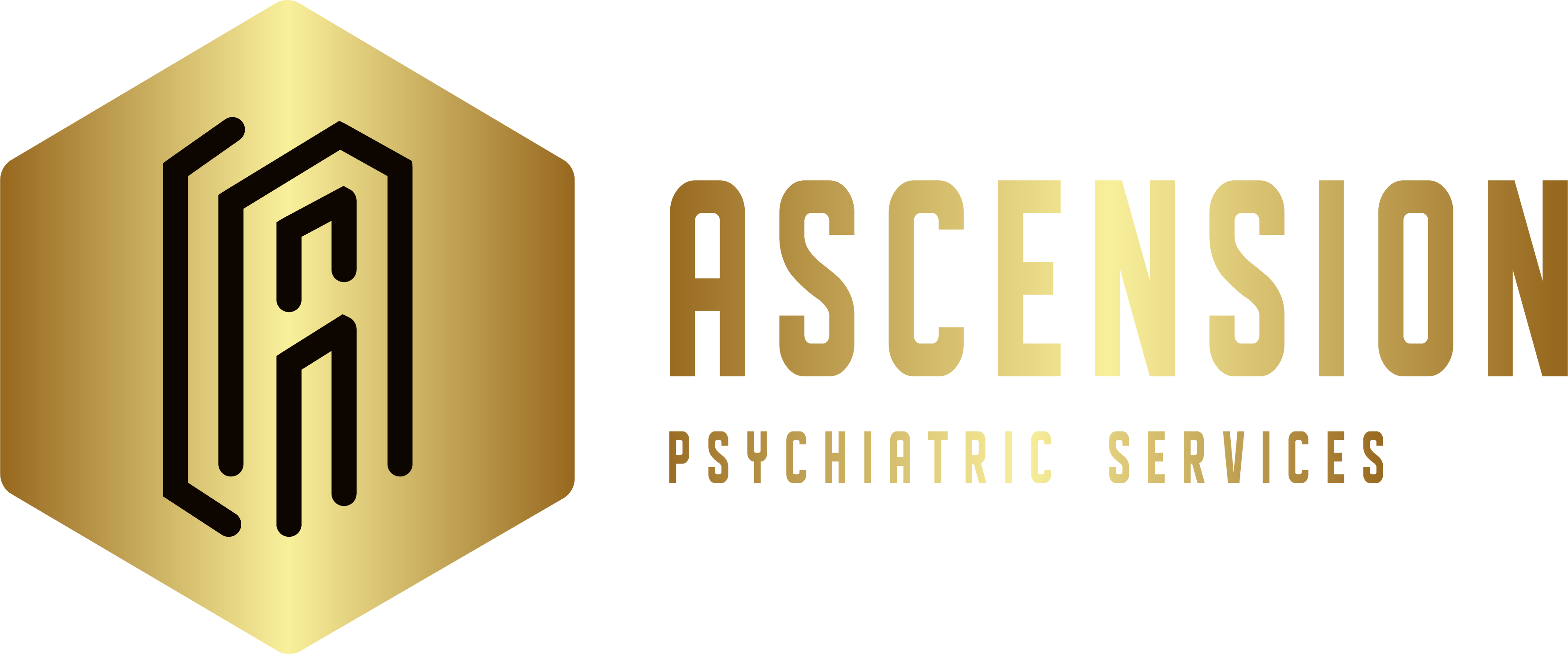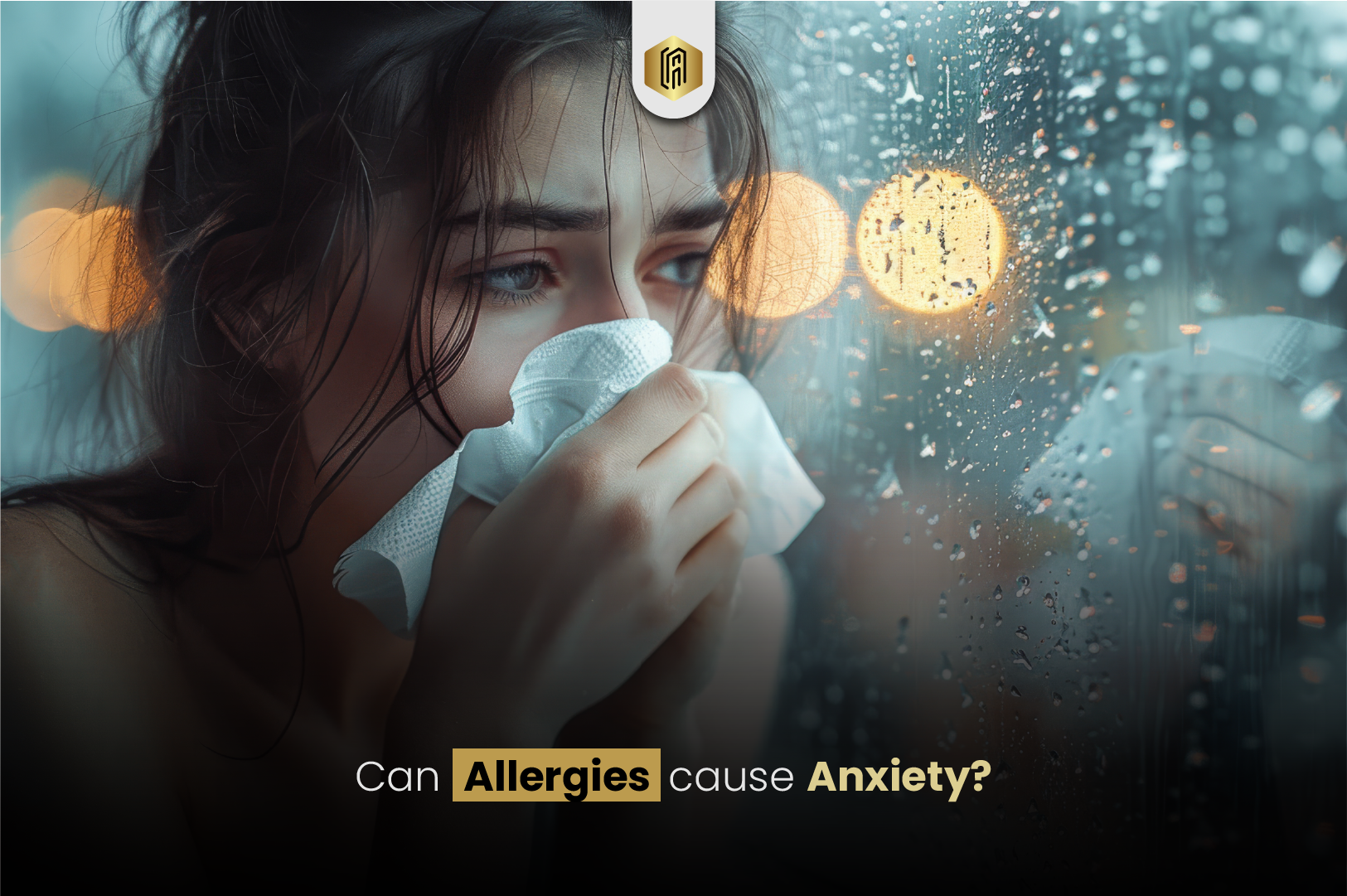Allergies are more than a sneeze or an itch; they shape our emotions and thoughts. Can allergies cause anxiety? Simply, yes. We should explore more the link between allergies and anxiety. We should also address: “Can allergies cause anxiety?” and “Are seasonal allergies and anxiety related?”
Discover calm and clarity with Ascension Psychiatric Services. We help you understand the link between allergies and anxiety. We offer support for a healthier mind. Reach out today!
The Link between Allergies and Anxiety
Your body sometimes reacts to things like pollen, dust, or some foods. This response can lead to uncomfortable signs. Things like a blocked nose and anxiety, itchy skin, or teary eyes can make you stressed and overwhelmed. Think about feeling constantly uneasy and breathing with difficulty. It’s clear to see how this could make a person nervous.
How do Allergies Affect Mental Health?
Allergies and mental health are linked. It’s not just physical discomfort that allergies bring. They can mess with your mood and mind too. Imagine this: if you’re always on guard against allergy symptoms, it can mess with your mind too. This never-ending pressure can push you into anxiety or maybe even depression. You might fear of allergic reaction, and such a fear can cause anxiety.
Can Allergies Cause Anxiety?
Can allergies cause anxiety? Indeed, they can. Allergies influence your brain’s chemistry and can increase feelings of worry or unease. Battling symptoms such as nasal congestion and anxiety can set your mind spinning, sparking worry. Also, physical discomfort may disrupt your sleep, ruin your appetite, or keep you from enjoying activities. This can add to your feelings of anxiety.
The connection between seasonal allergies and anxiety is quite strong. There are specific times in a year, such as spring and autumn, when the levels of pollen increase. This surge results in allergy symptoms for many people. This expected pattern raises anxiety. People know a tough time is coming. The expectation of this discomfort can spike anxiety levels, forming a difficult-to-break loop.
Can Anxiety Cause Sinus Problems?
So, you may ask, can anxiety cause sinus problems? Anxiety doesn’t directly lead to sinus troubles. But it can intensify symptoms that are already there. When anxiety kicks in, sometimes physical responses follow. You might get a stuffy nose or a slight headache. It will feel like sinus pain. This similarity may suggest a link between anxiety and sinus issues. Yet, anxiety is not the cause of the sinus problem.
Food Allergy or Anxiety – Which One Is It?
It can be hard to tell if symptoms are from a food allergy or anxiety. Both can cause a fast heartbeat or an upset stomach. If you feel jittery after a meal, it might be a small allergic reaction. It could be putting your body on guard. Alternatively, it could be anxiety making you over-notice common body responses. Knowing your triggers and consulting a doctor can help. It can separate the two.
Can Allergies Trigger Anxiety?
Many studies back the notion that allergies trigger anxiety. Constant allergen battles can tire your immune system, leaving you feeling more frazzled. Inflammation, a common allergy issue, is linked to mood and anxiety. It affects brain areas that control them.
Allergies and Palpitations: A Scary Combo
Heart palpitations worry lots of people. Do allergies cause palpitations? Uncommon, but possible. Certain individuals experience racing heartbeats when facing intense allergic responses. This can truly be frightening and may trigger anxiety. Worrying about a bad allergic reaction can cause palpitations. This can happen even with minor allergy signs.
Nasal Congestion and Anxiety
Having a stuffy nose often leads to anxiety. If your breathing is hampered by nasal blockage, it can spark feelings of unease or panic. Continuous nasal congestion can raise your anxiety. It disrupts sleep and makes it hard to relax and concentrate.
Sinus Infection Depression
Sinus issues, such as infections, can sometimes cause depression. Ongoing stuffiness, headaches, and illness can lower your mood. The depression does not come from the infection. It comes from the constant discomfort and interruptions to your routine.
Anxiety and Watery Eyes
Anxiety and watery eyes might seem unrelated. But, they can be connected in unexpected ways. Watery eyes are often a sign of allergies. When anxious, they can heighten your awareness and unease. This adds to your anxiety. It becomes a cycle, each symptom escalating the other.
Coping with Allergies and Anxiety
When allergies and anxiety combine, wrangling both should be your goal. Here’s some advice:
- Pinpoint Your Triggers: You must find your allergy culprits. This will help you avoid them and reduce anxiety. It’s vital to find your triggers, whether foods, pollen, or dust.
- Seek Medical Advice: A health professional may assist in determining whether your signs are due to a food allergy or anxiety, or if another condition exists. They can suggest treatments to help alleviate both allergy and anxiety symptoms.
- Healthy Lifestyle: Sticking to a nutritious diet, exercising regularly, and getting enough rest can beneficially impact both anxious and allergic reactions. Maintaining your hydration and steering clear of symptom aggravators like alcohol or caffeine is paramount.
- Relaxing Techniques: Try strategies to ease anxiety such as taking deep breaths, meditating, or doing some light yoga, especially when allergic symptoms seem too much to handle.
- Medication Management: Appropriate allergy medication usage can manage symptoms that might otherwise lead to anxiety. Discuss available options with your doctor.
Conclusion
So, can allergies cause anxiety? Yes, indeed. The bond between allergies and anxiety is intricate but genuinely exists. By grasping this link and fixing both issues, you can reduce their impact on your life. Keep in mind that if symptoms disrupt your daily routine, it’s crucial to get help. A good strategy can relieve your allergies and anxiety. It can help you return to your normal state.
FAQs
Can allergies cause anxiety?
Allergies indeed have the potential to spark anxiety. Allergies can cause a stuffy nose, itchy skin, and teary eyes. These symptoms can induce stress and anxiety. The body’s defense mechanism may tweak the brain’s chemistry in response. This can raise anxiety.
How are seasonal allergies and anxiety related?
When pollen counts are high in the spring and fall, seasonal allergies often flare up. This can trigger more anxiety. Allergy symptoms are annoying. They can cause stress and anxiety.





No comment